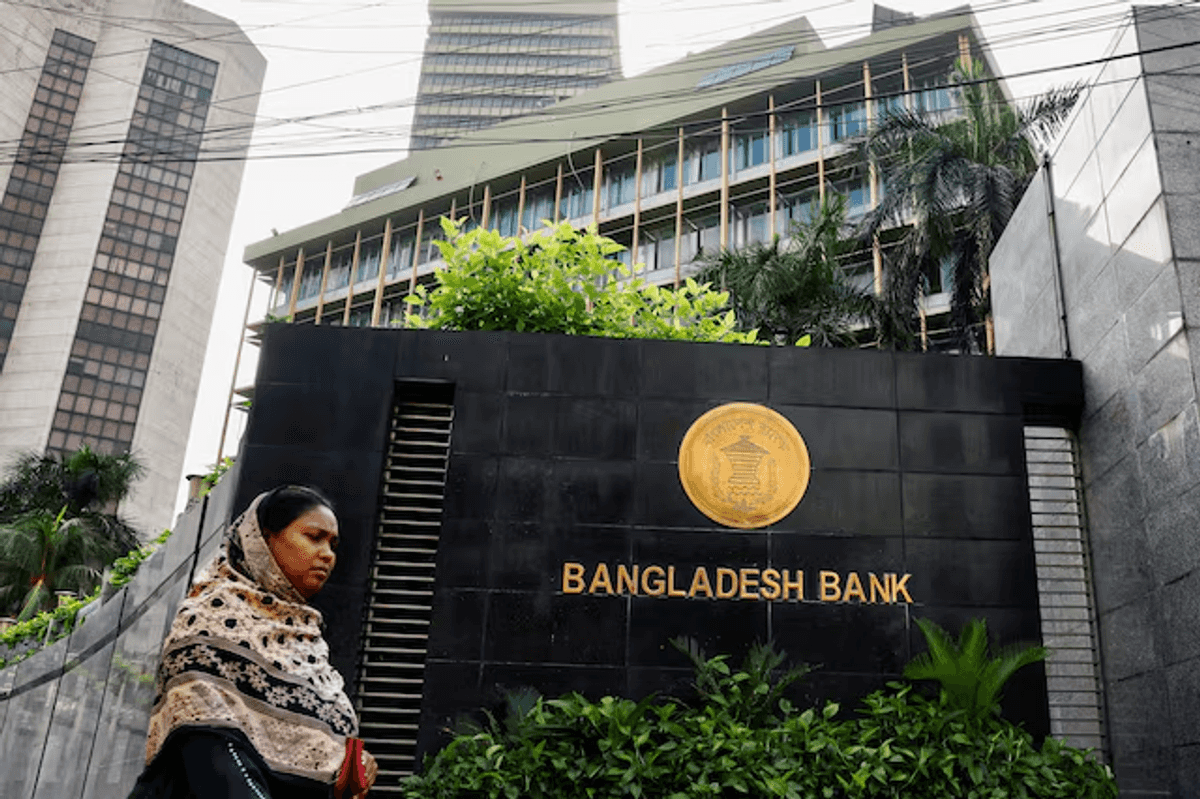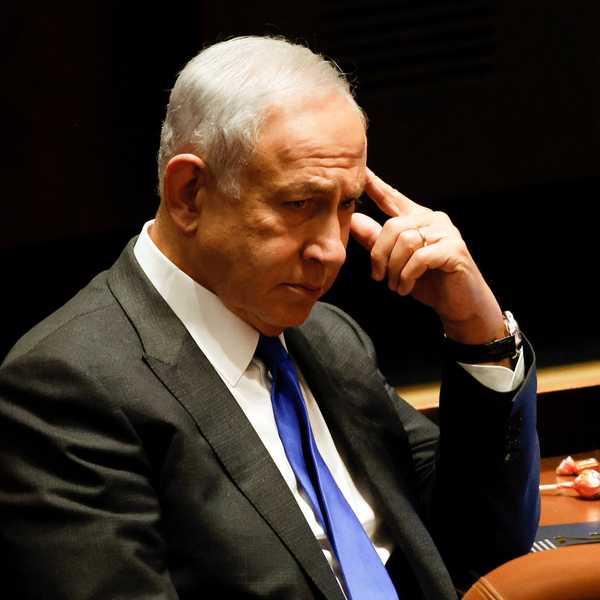Bangladesh bank buys $171M in first-ever dollar auction to stabilize exchange rate
Central bank sets Tk121.50 per dollar in landmark shift aligned with IMF-backed reforms
Business Desk
The Business Desk tracks economic trends, market movements, and business developments, offering analysis of both local and global financial news.

A woman passes by Bangladesh's central bank in Dhaka, Bangladesh, July 19, 2023.
Reuters/file
In a major policy shift, the Bangladesh Bank held its first-ever US dollar purchase auction on Sunday, buying $171 million from commercial banks in a move to stabilize the country's exchange rate.
The central bank set a cut-off rate of Tk121.50 per dollar—above the prevailing market rate of around Tk120—to arrest the sharp decline in the dollar’s value. The premium price encouraged participation even from banks willing to sell at lower rates, experts said.
“This is a clear message to the market that the dollar rate will not be allowed to fall below this level,” a senior central bank official told The Business Standard. The official added that the Tk121.50 rate closely matches the Real Effective Exchange Rate (REER), which stood at Tk121.13 in June.
Deputy Governor Md Kabir Ahmed said the auction reflected market conditions and followed international best practices. “We haven’t fixed a purchase target. We will continue buying dollars through auctions as needed,” he said.
The auction was conducted on a Sunday, when international markets are closed. Settlement is scheduled for Monday.
Bankers said the auction was necessary to calm the market and prevent panic. A deputy managing director of a major private bank noted that recent strong dollar inflows had caused rates to plunge, leaving some banks unable to find buyers in the interbank market.
While a weaker exchange rate helps importers, it hurts exporters and remittance flows, risking a shift to informal ‘hundi’ channels. By offering a higher rate, the central bank effectively set a floor, sending a reassuring signal.
“This move shows a commitment to exchange rate stability,” said Sheikh Mohammad Maroof, managing director of Dhaka Bank. “When inflows surge, it’s globally recognized that central banks absorb excess dollars to manage volatility.”
The auction fulfills a key condition of Bangladesh’s ongoing International Monetary Fund (IMF) loan program. The IMF has required a flexible, market-based exchange rate since mid-May.
“In line with our IMF commitments, the central bank has stepped back from direct market intervention and now engages at market rates when necessary,” a policy-making official said.
The policy was approved Sunday morning, and an auction committee was formed. Banks submitted bids via email by 4 p.m., with 8 to 10 institutions participating.
The auction comes amid a shift in dollar market dynamics. Previously, demand far exceeded supply due to delayed government import payments and high private dues. Now, those pressures have eased.
“Import LC openings are down, and capital machinery imports have slowed significantly,” said a managing director of a leading bank. “With subdued investment and strong remittance and export inflows, the dollar supply is now outpacing demand.”
Banks had recently been offering Tk120–120.50 for remittance dollars, compared to Tk122.80–122.90 a week earlier. The rapid decline triggered fears of further depreciation.
Maroof supported the central bank’s action but cautioned against over-optimism. “We’re not yet in a position for the taka to strengthen,” he said. “Our competitors like India and Sri Lanka regularly depreciate their currencies to stay competitive. The current dollar glut is likely temporary.”
As the market adjusts to the new auction-based model, analysts will watch whether this move signals a longer-term shift to greater flexibility in Bangladesh’s exchange rate policy.







Comments
See what people are discussing